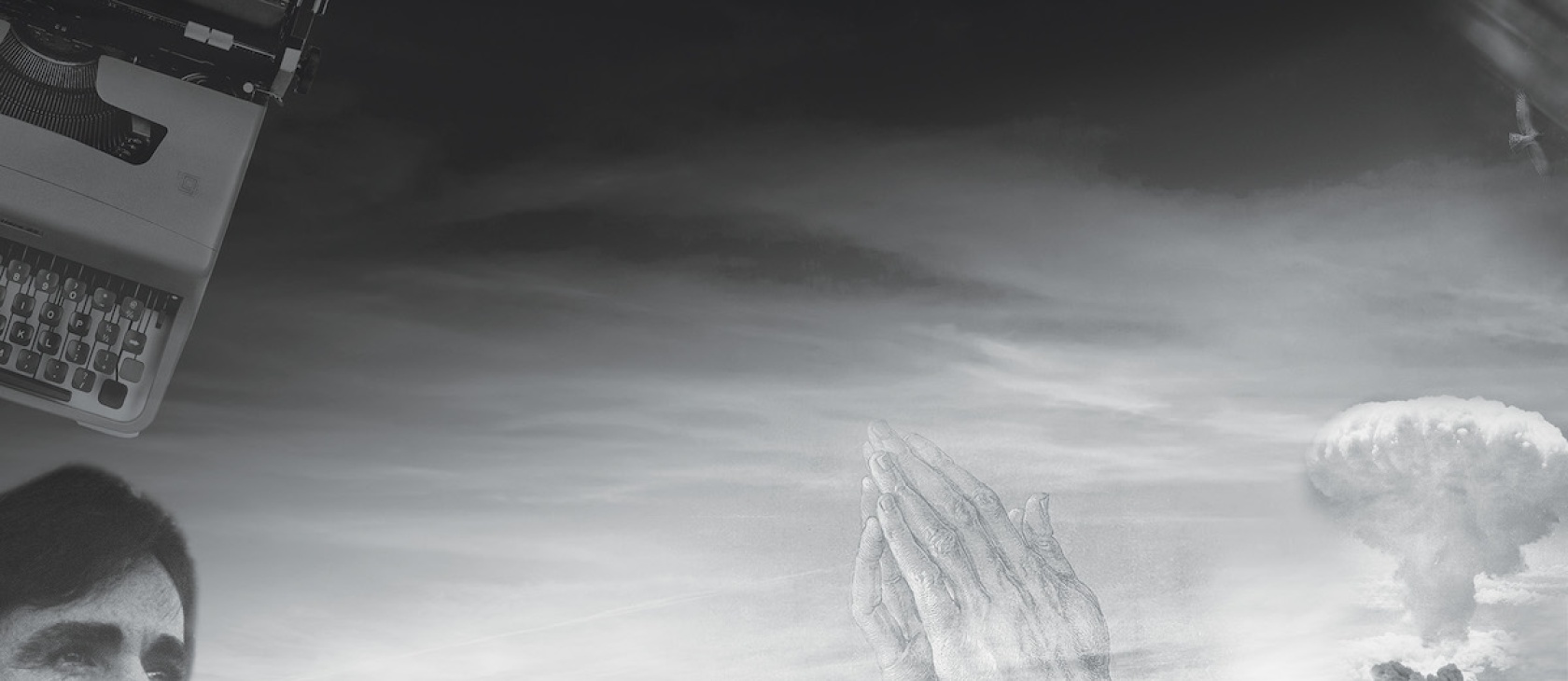Cormac McCarthy, whose stark, quintessentially American novels have frustrated, infuriated, and inspired a generation of writers, passed away at the age of 89 on June 13, 2023. He wrote to the very end, publishing two new books back-to-back in 2022. Gregory Wolfe describes the enigmatic, hilarious The Passenger and its slim coda, Stella Maris, as McCarthy’s “overture at the end,” a re-presenting of the themes the author has been exploring in book after book for decades. May McCarthy rest in peace; the mystery of God, which he pursued in every one of his writings, is now clear to him.
Amid the carnage and rage and confusion of McCarthy’s tales, in a world apparently bereft of a loving Creator or Redeemer, God is still present in His absence.
That is not to say, however, that McCarthy’s oeuvre has suddenly become clear to us. The new books are as stubbornly resistant to proof texting as his earlier novels. But if only from the title of what will probably be McCarthy’s last book, I found myself asking to what degree we can say that McCarthy’s work is, in that great American tradition, “God-haunted.” Stella Maris, Star of the Sea, Our Lady of Peace, is invoked for the safety of wayfarers over the sea, which is traditionally a symbol of this world and its destructive ways. What are the folk of McCarthy’s books if not wayfarers, buffeted by the sea of time, violence, and despair? Is there perhaps a star gleaming in this storm?
Few American writers are simultaneously as popular and as unpopular as Cormac McCarthy. Those critical of McCarthy’s work generally form two camps: the more pedestrian, who find McCarthy’s writing simultaneously plotless and repulsive, and the more sophisticated, who believe McCarthy is running some kind of sham, and that all his spiraling descriptions conceal the dark truth that he has nothing to say. I have greater sympathy with one of these camps than with the other, for McCarthy’s plots are often meandering—sometimes even petering out entirely after several hundred pages, as in The Passenger—and the violence, especially in Blood Meridian, The Road, and No Country for Old Men, is gut-wrenching. But the more sophisticated critics, with their suspicions that McCarthy’s voice is merely schtick, are sensing something important about McCarthy’s work, though they interpret it wrongly. They sense that McCarthy is indeed writing about a void, and at the end of the day he truly does have nothing to offer to fill that void.
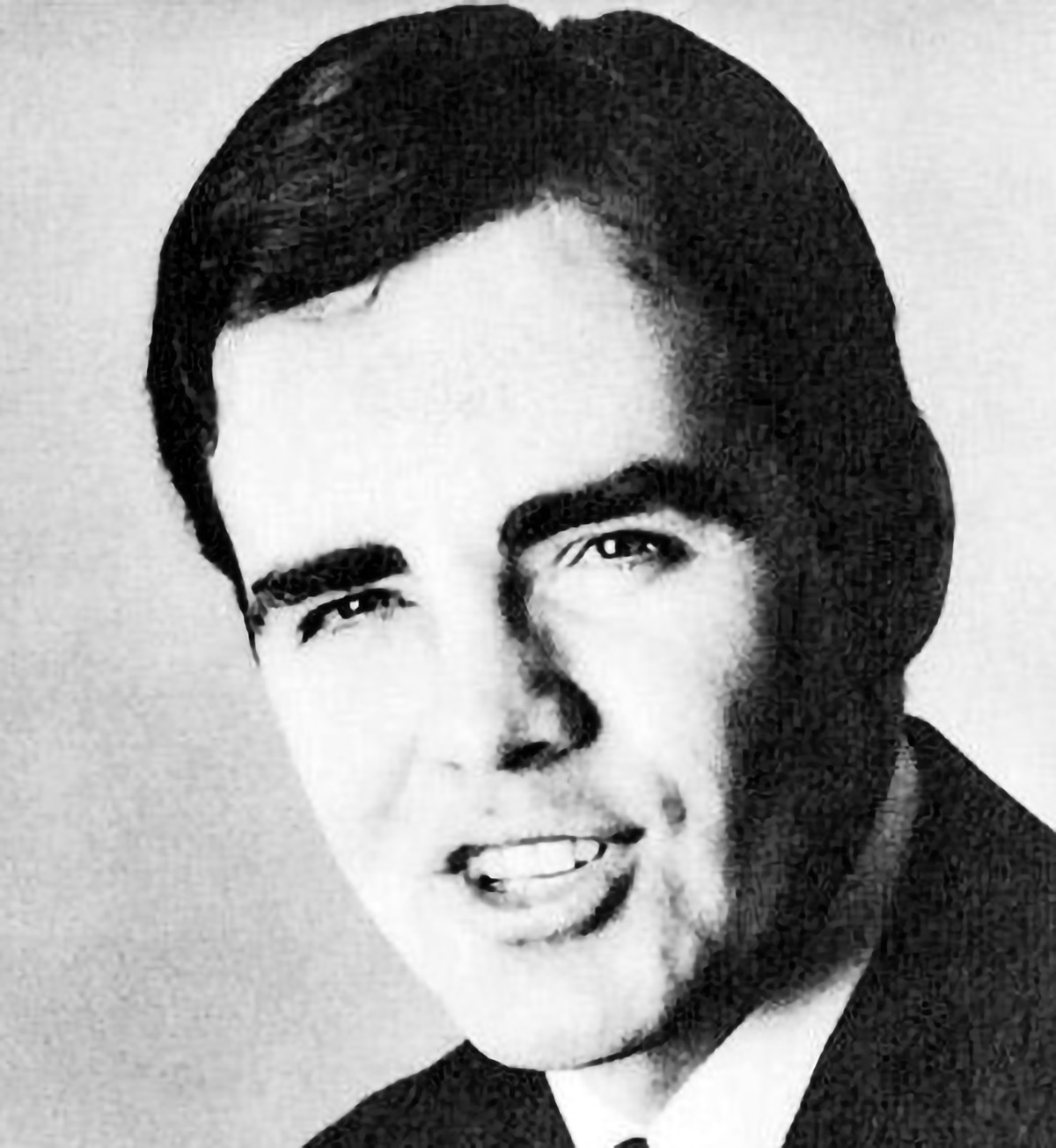
Does this make McCarthy’s work a waste of time? Only, I believe, if we consider human existence a waste of time. McCarthy is obsessed with the futile offering, the empty gesture, but even as his characters demonstrate the pointlessness of the gift, he himself makes it over and over again: the gift of attending to the world, of looking, of listening, until we become convinced that even if what we attend to is loneliness, if what we look at is collapse, if what we hear is the wind whistling through an abandoned house, our attention becomes a little participation in the death of the world—a participation that, in keeping with the mystery of faith, may become some kind of atonement.
God Among the Horrors
McCarthy was born in 1933 in Rhode Island and christened Charles Joseph McCarthy Jr. When he was only four years old, his family moved to Knoxville, Tennessee. This was a momentous move for little Charles; McCarthy went on to become known as a Southern writer, and most of his books take place in the American South and Southwest. McCarthy’s family was Irish Catholic. He was baptized a Catholic and attended parochial school. He has been married three times and divorced three times. Some of his books, most notably Suttree, with its accounts of Appalachian homelessness, are discernably autobiographical. Legends of McCarthy’s eccentricities abound, from refusing to speak and receive honoraria while living in poverty in a barn, to his distaste for literary folk, preferring scientists and engineers to people of the word. From this life, rather an epic in itself, spin out the two major themes of McCarthy’s work: violence and faith.
The first of these themes is certainly the more noticeable in his novels, which are famous for their gruesomeness. McCarthy is not merely interested in evil; he is interested in violent evil, in evil that seeks to rend and skin and rip and gut, evil that wants not merely to annihilate but to dismember slowly, joint by joint, the world.
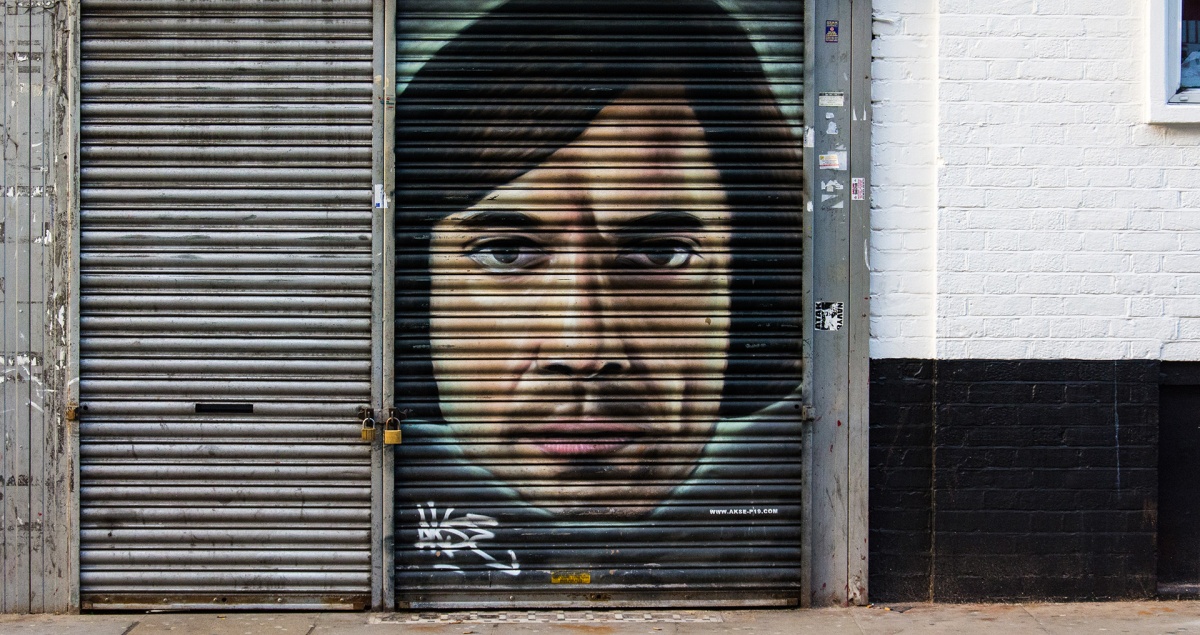
And this is no ordinary violence; the violence of McCarthy’s novels is pervasive, creative, operatic in its scale, yet keen and specific as splinters under the fingernails. Even people who have not read much McCarthy know this about his works, aided perhaps by the film versions of some of them (which are, if anything, less violent than their source material). This element of McCarthy’s voice reaches its apex in Blood Meridian, a book so bathed in blood that the plot itself dissolves into it, becomes merely a ripple in the wash.
Yet there is another theme, quieter yet persistent, that exists alongside—often within—the violence: faith in God. I have chosen those words carefully, because the theme is not God Himself, or His existence or presence, but faith in God. McCarthy does not often ask whether God exists; throughout his many works, that question is generally beyond dispute. Even the atheists, like White in The Sunset Limited, reveal eventually that they do not really disbelieve in God’s existence; it is just that they want nothing to do with Him. “Why can’t you people just accept that some people don’t want to believe in God?” Whether or not McCarthy himself assumes there is a God, his characters do, because the question of whether God exists is not within the scope of language.
What we can consider, however, is faith in God. Asking if God exists is not the role of the poet or the novelist, according to McCarthy. It may not even be the role of the human. The real question, the question McCarthy’s characters face over and over, is what do you believe about God? For example, in Cities of the Plain, John Grady Cole speaks with a blind man about his intense but conflicted love for the prostitute Magdalena. The blind man urges him to pray, then the dialogue runs as follows:
Will you?
No.
Why not?
I dont know.
You dont believe in Him?
It’s not that.
For McCarthy heroes (and even many villains), it is never “that.” Even the ragman in Suttree won’t deny God. “I always figured they was a God,” he says after getting Suttree to agree to burn his body with gasoline after he dies. “I just never did like him.”
These questioners are Job, not Sartre. It is not a lack of belief in God’s existence; often it is not even a lack of faith in prayer. It is always something else, something connected with the inescapable violence of the world, that draws such a thick veil between us and God that McCarthy’s characters often doubt whether it is worthwhile to seek to draw it back. Looking around at the world, McCarthy concludes it is a fearful thing to imagine the God who made it.
Whether or not McCarthy himself assumes there is a God, his characters do, because the question of whether God exists is not within the scope of language.
Of all his writings, it is in the play The Sunset Limited that McCarthy tackles the question of faith most directly. In the play, White, an atheist philosophy professor, has attempted suicide and was prevented by Black, an ex-con and born-again Christian who is not content with saving White’s body; he wants his soul as well. As the two battle back and forth, the professor’s view becomes ever bleaker. He says at last, “Western Civilization finally went up in smoke in the chimneys at Dachau and I was too infatuated to see it. I see it now.” Later, he declares, “[This is] a horrible place full of horrible people. These people are not worth saving.”
McCarthy returns to the horrors of World War II in The Passenger. The main character, Bobby Western, lives with the knowledge that his father—“who had created out of the absolute dust of the earth an evil sun by whose light men saw like some hideous adumbration of their own ends through cloth and flesh the bones in one another’s bodies”—helped build the nuclear bomb. He recalls what he heard about Nagasaki in visceral detail:
Burning people crawled among the corpses like some horror in a vast crematorium. They simply thought the world had ended. It hardly even occurred to them that it had anything to do with the war.
This section closes with Bobby’s sister Alicia, for whom he harbors an incestuous but unconsummated passion, writing to him in a letter, “God was not interested in our theology but only in our silence.” Horror, McCarthy indicates, is no proof that God does not exist.
This is not to say that McCarthy never puts atheism into his characters’ mouths. The clearest example in his canon comes from The Road, in which a father and his son traverse a post-apocalyptic wasteland, skirting cannibalistic gangs and picking their way to the coast, where they can only hope a remnant of human community persists. In their travels, they meet a beggar on the road, to whom they offer a little help. The beggar voices some of the starkest despair in McCarthy’s bleak canon, declaring:
There is no God.
No?
There is no God and we are his prophets.
Later, the beggar says:
Things will be better when everybody’s gone. … We’ll all breathe easier.
The rest of the book carefully refutes the beggar’s nihilism, as the two heroes struggle on, seeking to live and rejoin the human race—an act that requires some kind of belief in God, as we see on the final page of The Road:
[The boy] tried to talk to God but the best thing was to talk to his father and he did talk to him and he didnt forget. … The breath of God was his breath yet though it pass from man to man through all of time.
These two themes—violence and faith—make for uneasy but inseparable companions. But to understand just how intertwined these two are in McCarthy’s imagination, we must listen more closely to his voice and see how he approaches violence and faith through his writing.

God’s Signature
McCarthy’s writing is poetic. By that I mean that many of McCarthy’s sentences do not appear to exist to serve some purpose outside themselves: their language, the texture of the sounds, the relations (often ironic, in his case) between the words and their meanings—all this is the province of poetry.
Specifically, his writing is elegiac. An elegy is a poetic song of something lost or passing away; it is an act of deliberate, careful recording, a close look at what is gone so we can fix its virtues in our mind before time obliterates even the memory of what used to be.
McCarthy is a master of the elegiac sentence, the vivid description that is itself a piling up of themes (in his case, almost always tragic themes), the sentence in which the metonymy or the synecdoche or the metaphor is so perfectly realized that there is no linguistic bridge between what is and what is meant, in which the description is a farewell. As the description of a landscape unfolds across the page, a corresponding description of the human condition, or our situation in the universe, or our muddled relationships with God and each other rises simultaneously in our minds.
See this passage, for example, from Blood Meridian, the book in which McCarthy’s particular prophetic voice reached its zenith.
The shadow of an eagle that had set forth from those high and craggy fastnesses crossed the line of riders below and they looked up to mark where it rode in that brittle and faultless void. … In the evening they came out upon a mesa that overlooked all the country to the north. The sun to the west lay in a holocaust where there rose a steady column of small desert bats and to the north along the trembling perimeter of the world dust was blowing down the void like the smoke of distant armies.
If someone wanted to know what Blood Meridian was “about,” they could do no better than to read this passage. Seemingly just a beautiful description, it is actually the entire theme of the book: the unremitting brutality of this world beneath the placid face of a silent heaven. There is no obvious “door” in or out of this metaphor; it is not an edifice erected to house something else, nor does it evidently serve any theme or point outside its own words. It is simply there, a sentence crafted and honed for its own sake, and yet it is clearly more than the sum of its words, or even the sum of its connotations. This sentence is about the desert, yes, but it is also about the men looking at the desert; it is a description of a scene, and it is a description of the whole created order over which the spirit of God hovers like an eagle whose proper sphere is the “brittle and faultless void.” This is the poetic nature of McCarthy’s voice. Much of his finest writing is simply a long, searching look at something that, we intuit, is passing away.
Such passages appear over and over again, giving McCarthy’s prose a dream-like feel, an atmospheric quality that comes not from the plot but from the way the themes pulse through the very sentences. The themes suffuse—haunt, if you will—the words.
This kind of poetic writing, in which the metaphor is so complete that we are tempted to miss that it is a metaphor at all, pervades The Passenger as well, but in a new way. The book contains some of McCarthy’s signature descriptions of landscapes, but he devotes his powers to dialogue in this book—a curious choice for an author famous for creating characters whose isolation shapes their personality and their fate. The Passenger is a book of isolation, too, but isolation in community. Unlike many other McCarthy leading men (The Kid of Blood Meridian, the father of The Road, John Grady Cole of The Border Trilogy, Llewellyn Moss of No Country for Old Men, Lester Ballard of Child of God, the list goes on), Bobby Western, the main male character of The Passenger, does not have to be alone. He has what it takes to belong to a community, apparently; people like him. But fate drives him into the wilderness just the same.
It is imaginatively possible that God is a sadomasochistic entity whose delight in creation is a perverse delight in creation’s suffering.
Before he goes, however, he indulges in many lengthy dialogues—also rare for a McCarthy man. And it is here that McCarthy brings the power of his poetic voice to bear, for these dialogues reveal much without seeming to. Take Bobby’s brief speech about the Z boson, a hypothetical particle in particle physics:
You wouldnt see a lepton with the opposite charge to the W particle because it wouldnt be a W particle. It would be a Z particle. [Weinberg, a physicist] figured that you wouldnt see anything, and that was what you had to look for. Or all you would see would be a burst of hadrons and that would be the signature of the Z that people said would never be found.
Asher sat with his pencil between his teeth. Neat, he said.
This is a fascinating little peek at particle physics, and just navigating the dialogue here is an intellectual exercise in itself. It contributes little to the plot (insomuch as The Passenger has a plot), and it would be easy to skim through this section as an elegant but nonessential piece of world-building.
Yet this is The Passenger’s version of the Blood Meridian landscape description: a seeming flourish that actually exposes the whole problem of God and faith. In this discussion of an obscure, hypothetical element of one branch of theoretical physics, the Z particle becomes a seamless metaphor for Cormac McCarthy’s God. The Z particle cannot be found; the only way to discern it is to seek its absence, to notice and track the voids in the world. That is the only indication of its presence—that, and a violence, an explosion caused by something imperceptible, or maybe the absence of something imperceptible.
For McCarthy, violence is the signature of God: God, who cannot be seen, who is only indicated by an absence, who no amount of experimenting or observing will reveal, but whose existence is in evidence all around us, every day, through the apocalyptic and apophatic violence that makes up the very stuff of the world.
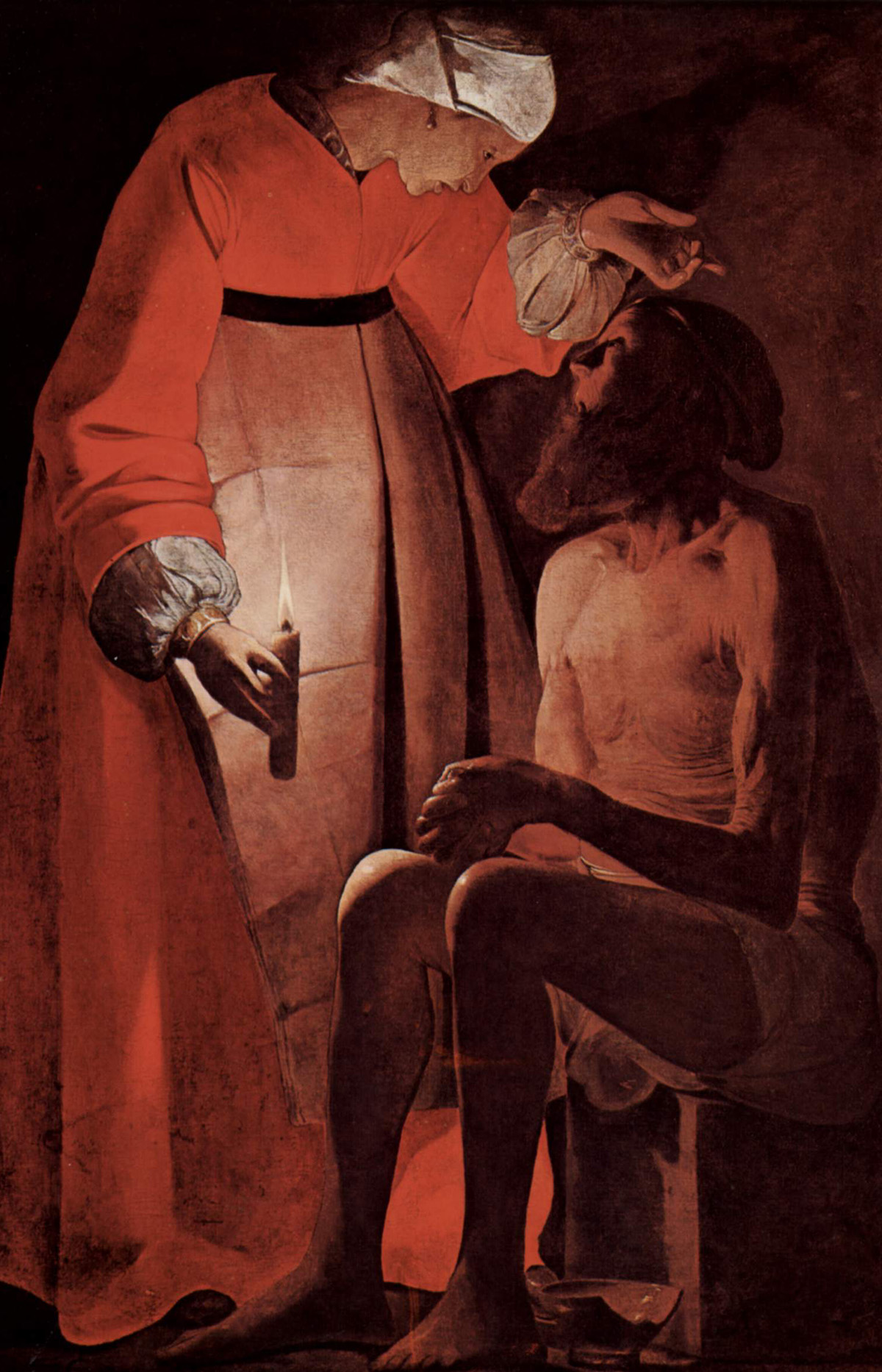
The Broken Scales
“Curse God and die,” says the beggar in The Road, quoting Job’s wife from that most bewildering of Old Testament tales. The beggar’s words exemplify one of the possible responses to the intermingling of God and violence, death and the Divine: despair.
In Cities of the Plain, an old man describes an army marching out to war in all its fluttering glory bearing “portraits of the Virgin carried on poles into battle as if the mother of God herself were the authoress of all that calamity and mayhem and madness.” The mother of God here is raised up as the mother of violence, a fearsome equivocation. In Outer Dark, one character bewails the state of the world, saying, “I’ve seen the meanness of humans till I don’t know why God ain’t put out the sun and gone away.” To which some McCarthy characters, like White in The Sunset Limited, might reply, “Who says He hasn’t?”
White gives us the best example of an intellectual atheist’s response to suffering in the world, declaring, “The one thing I won’t give up is giving up. I expect that to carry me through,” indicating his determination to commit suicide—to curse God, if you will. But even White does not spend his energy arguing that God does not exist; instead, he insists, “I don’t believe in God. … Can’t you see the sound of the clamor and din of those in torment has to be the sound most pleasing to His ear?” He does not believe in God, not because he has been convinced rationally that God does not exist, but because the world around him indicates that whatever God is, He is not good. His disbelief is a choice, a refusal to associate with a God who, to White’s eyes, is simply violence omnipotent.
We get a glimpse of what this looks like at the ending of Blood Meridian, when the incarnation of evil known as Judge Holden dances naked with harlots and dissipated soldiers. Having just committed a crowning act of violence, an act so gruesome that even this most explicit of books refuses to describe it, now
[the judge] pirouettes and makes a pass, two passes, dancing and fiddling at once. His feet are light and nimble. He never sleeps. He says that he will never die. He dances in light and in shadow and he is a great favorite. He never sleeps, the judge. He is dancing, dancing. He says that he will never die.
Taken by itself, this could be a beautiful description of God from the writings of a Christian mystic. But Judge Holden is, to my eye, the most purely evil character in McCarthy’s canon.
That is no coincidence. Rather, it is the shadow we all live under: it is possible that this is the truth. It is imaginatively possible that God is a sadomasochistic entity whose delight in creation is a perverse delight in creation’s suffering. Even for those of us who have staked everything on a different story, there are things in this world that do not make sense, realities of violence and suffering that we must seek to accept as mysteries, not to understand. Even within Christian doctrine, God has a special affinity for agony. Think of when He asks Abraham to sacrifice his own son; does God’s intercession at the last second atone for the anguish Abraham (and Isaac, presumably) bore? Think of the Flood, when God annihilates the mankind He created, a mankind He will later die to redeem; does God’s later intervention in history somehow balance the scales for what came before?
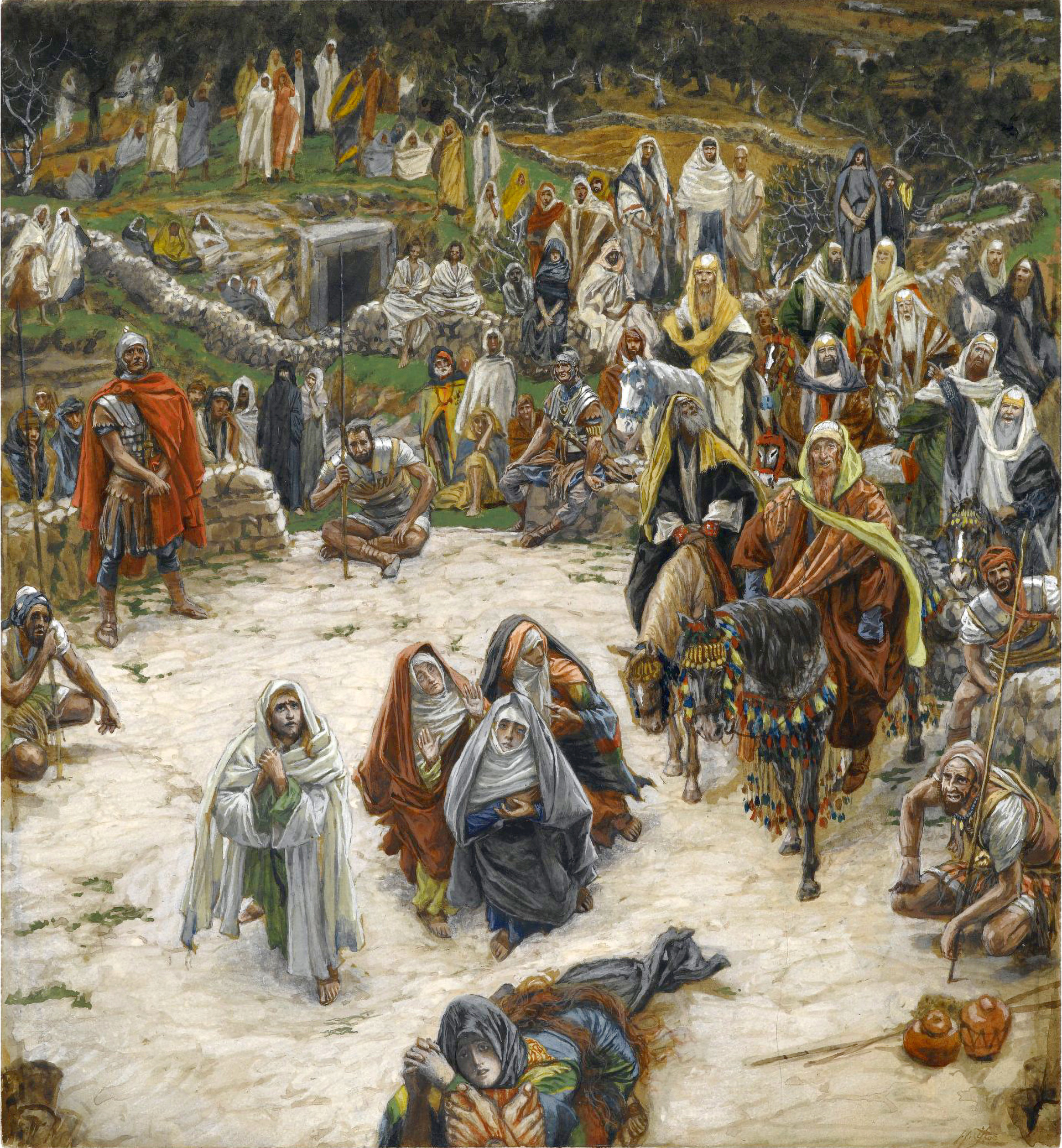
These are, of course, questions that fascinate college atheists, juvenile questions that children use to obfuscate evangelicals. But that does not rob these questions of their urgency. Even the death of Christ on the Cross, if we try to present it as some sort of rational solution, something to balance the scales, only weighs down further the side of anguish. Only when we see the Cross as an act of love, a profound identification of God with the creation He has made, do the scales themselves shatter, and God’s blood begins to offer solace.
McCarthy knows all this. In All the Pretty Horses, Alejandra’s grandmother says to John Grady Cole that in a Spaniard’s heart there is “a deep conviction that nothing can be proven except that it be made to bleed. Virgins, bulls, men. Ultimately God himself.” If this is so, we are all Spaniards; we are all convinced of the deepest truths only by blood.
A Thousand Christs
“This is a thirsty country. The blood of a thousand Christs. Nothing.”
So says an aged Mexican father watching his son bleed out after a pointless barroom brawl in Blood Meridian. This world is endlessly thirsty, McCarthy believes: thirsty for blood and for tales of blood. At one point in The Sunset Limited, Black offers to tell White a “jailhouse story,” a tale of gore and blood and violence such as rightly lives in a Cormac novel, if only White will stay and not go kill himself. It works—for a while. This gives us a clue to McCarthy’s own novels: Could it be that he offers these as his own jailhouse stories, stories from the prison of the world, to keep his readers with him, as it were, to keep them alive?
And within those jailhouse stories, there are glimmers of something else, something from beyond the prison walls. In Cities of the Plain, John Grady Cole says “he believed in God even if he was doubtful of men’s claims to know God’s mind. But that a God unable to forgive was no God at all.” Debussy, the glamorous transsexual in The Passenger, admits to Bobby, “I don’t know who God is or what he is. But I dont believe all this stuff got here by itself. Including me.”
These passages do not necessarily reflect McCarthy’s own beliefs—in fact, I think it is fairly clear that they do not, or at least do not sum up his beliefs. But they exist. They were written, and written clearly and beautifully, without irony, each of them set as a gleaming thorn in the crown McCarthy is weaving, and that tells us something.
Perhaps the key is to be found in The Crossing, when a distraught father whose son has died in an earthquake moves into a collapsing church to reckon with God. The man’s fate is sure; the compromised vault of the church will fall and crush him, sooner or later. Yet he remains, reading his Bible, wrestling with God. A priest comes to reason with him. The priest, we read,
spoke to this misguided man of the nature of God and of the spirit and the will and of the meaning of grace in men’s lives and the old man heard him out and nodded his head at certain salient points and when the priest was done this old man raised his book aloft and shouted at the priest. You know nothing. This is what he shouted.
Bobby Western ends The Passenger living in a windmill in Portugal. He says to a friend:
I light candles for the dead and I’m trying to learn how to pray.
What do you pray for?
I don’t pray for anything, I just pray.
Black ends The Sunset Limited alone in his room, bested by White’s final explosive denial of God’s good, and in the face of God’s silence, he says only, “If You speak again, I’ll keep your word. Is that okay?” There is no answer.
The father of The Crossing dies at last, not crushed by the vault but of simple illness:
At his dying he had told the priest that he’d been wrong in his every reckoning of God and yet had come at last to an understanding of Him anyway. He said that his demands upon God remained intact and unspoken also in even the simplest heart.
These are hard sayings. Harder yet is what is to come: “God needs no witness. Neither to Himself nor against. … To God every man is a heretic.”
This world is endlessly thirsty, McCarthy believes, thirsty for blood and for tales of blood.
For McCarthy, then, the whole world is Job kneeling in the dust, pleading for God to come and explain Himself, which God will not do. As the book of Job shows, when God does come at last, it is not to explain Himself but simply to be there.
As should be obvious by now, McCarthy’s books, from The Orchard Keeper to Stella Maris, do not offer simple answers to questions of faith. Instead, they weave faith and violence together so closely that, where there is one, we must reckon with the other. McCarthy’s characters blaspheme often; none of them has what I would call a reconciliation with God. Yet still, despite all this, his world is truly God-haunted: haunted by the ghost of God, God the Creator, God the Judge, God the Victim. The Catholic Church, into which McCarthy was baptized, teaches that Christ’s Wounds will never heal. This world can indeed hold the blood of a thousand Christs—and Christ will keep giving it, even unto the end of the age. That is the only ray of light, one that pierces even the bleak world of Cormac McCarthy.



